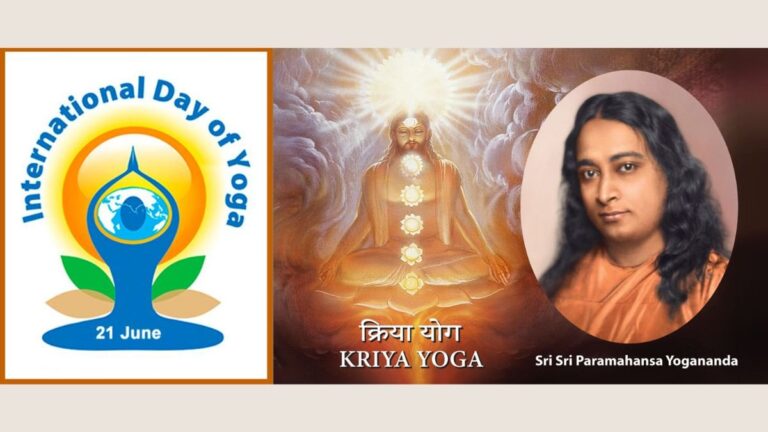Election Commission of India (ECI): Guardian of India’s democracy
The Election Commission of India (ECI) is India’s apex constitutional body entrusted with organising and supervising elections across the country. From the general elections to state assemblies and even the offices of the President and Vice-President, the ECI plays a central role in ensuring free, fair and orderly electoral processes.
Below is a detailed overview of its constitutional foundation, core functions, recent initiatives, significance for Indian democracy and the challenges it faces.
Constitutional and legal foundation
- The ECI derives its authority from Article 324 of the Indian Constitution, which vests the Commission with “the power of superintendence, direction and control of elections” to Parliament, state legislatures and the offices of President and Vice-President.
- It was first established in January 1950, soon after India’s Constitution took effect.
- Subsequent statutes such as the Representation of the People Acts (1950 & 1951) further define its powers, functions and procedures.
- The ECI is a multi-member body: it consists of a Chief Election Commissioner (CEC) and two Election Commissioners (ECs), as prescribed by law.
Key functions and responsibilities
The ECI’s remit is wide-ranging. Some of its major duties include:
- Election schedule and conduct: deciding dates for nominations, polling, counting and result-announcement.
- Electoral roll preparation and revision: maintaining accurate voter lists, adding new electors, deleting ineligible ones.
- Model Code of Conduct (MCC): issuing and enforcing conduct rules for political parties and candidates during election periods.
- Registration and regulation of political parties: recognising parties as national, state or regional; allotting symbols; ensuring compliance.
- Supervision of electronic voting machines (EVMs) and VVPATs: ensuring the integrity, security and reliability of voting technology. (See recent initiatives below.)
- Ensuring poll fairness: monitoring election expenditure, issuing directives for free and fair polls, taking remedial action (re-polls, supplementary elections) if needed.
Recent initiatives and reforms
The ECI has in recent years launched several initiatives to strengthen electoral integrity and voter participation:
- In 2025, the ECI announced the Special Intensive Revision (SIR) of electoral rolls, covering 12 states/Union Territories, ahead of upcoming elections. This step is designed to update voter lists through door-to-door verification, deletion of ineligible entries and inclusion of new voters.
- The ECI issued a new Standard Operating Procedure (SOP) for EVM and VVPAT checks, including “burnt memory” checks of machines and mock polls for the first two losing candidates — a transparency step following Supreme Court directives dated 9 May 2025.
- The ECI also announced removal of around 2.6 lakh duplicate EPIC (Electoral Photo Identity Card) numbers from its database — a long-existing data anomaly resolved via a national sweep across assembly constituencies.
Why the ECI matters — significance and impact
- As the body that runs elections, the ECI is fundamental to India’s democratic infrastructure. Its manner of functioning directly affects citizens’ ability to elect their representatives, the legitimacy of governments and the credibility of democratic processes.
- Accurate voter lists and reliable voting technology enhance voter trust, reduce the scope for malpractice and strengthen democratic outcomes.
- Its enforcement of the Model Code of Conduct and regulation of parties helps ensure that the electoral field remains level and that the election process is fairer.
- Reforms such as the SIR and EVM/VVPAT safeguard-measures strengthen the transparency and reliability of elections at a time when technologies and voter expectations are evolving.
Key challenges and outlook
While the ECI has made significant progress, it faces ongoing challenges:
- Data accuracy and roll management: Ensuring that voter rolls are up to date, free of duplication, deletion errors or inclusion of ineligible voters remains a demanding task — especially given India’s population mobility.
- Technology integrity and confidence: As EVMs and VVPATs are central to modern polls, any technical glitch or trust deficit can affect the credibility of the outcome. The new SOP is a step forward, but vigilance remains essential.
- Resource and logistical complexity: Conducting elections in India — with hundreds of millions of voters, thousands of constituencies, remote polling stations and varied terrain — is a vast operational exercise.
- Maintaining institutional independence: Given the ECI’s role in supervising elections involving ruling parties and opposition alike, maintaining autonomy and public trust in its impartiality is critical. Some legislative and judicial developments (e.g., the 2023 bill on CEC/EC appointment) indicate ongoing evolution in this area.
A snapshot: what every citizen should know
- If you are 18 or above, you are eligible to register as a voter. Check your name on the electoral roll via the National Voters’ Service Portal (NVSP) which operates under the ECI.
- Keep your Electoral Photo Identity Card (EPIC) updated and report any change in address or circumstance to avoid being excluded from your constituency roll.
- On polling day, ensure you reach the correct polling station and cast only one vote — fairness in turnout is a pillar of credible elections.
- Stay aware of the Model Code of Conduct during election periods: this governs what political actors can and cannot do — for example regarding campaign finance, rallies, announcements.
- Be mindful of voter education drives and reforms: the ECI often invites participation and awareness efforts to strengthen democracy at the grass-roots.
In conclusion
The Election Commission of India is not merely an administrative body — it is the engine of India’s electoral democracy. Its actions, effectiveness and reforms have far-reaching consequences for governance, representation and the voice of the people. Amid evolving technologies, demographic shifts and political dynamics, the ECI’s role grows ever more vital. As citizens, staying informed about its functions — and exercising our rights responsibly — helps uphold the quality and robustness of India’s democracy.
Also read:Empowering 17,000 Farmers: The Arna Dairy Model of Growth and Partnership
Last Updated on: Tuesday, November 4, 2025 10:39 pm by Sakethyadav | Published by: Sakethyadav on Tuesday, November 4, 2025 10:39 pm | News Categories: India





